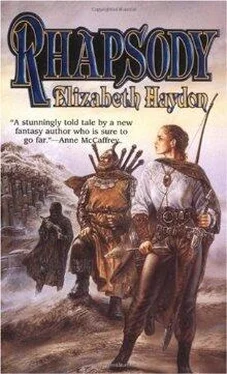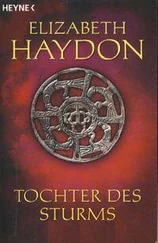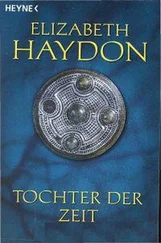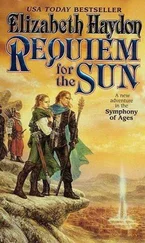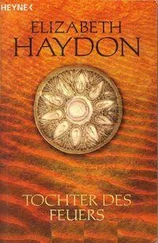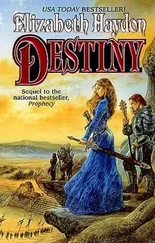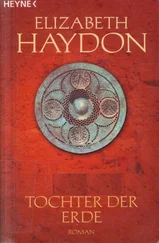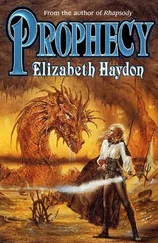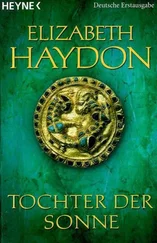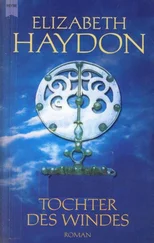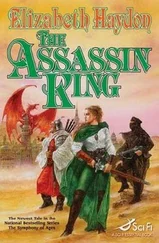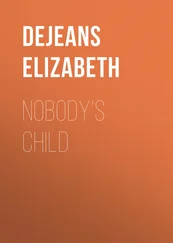A sense of calm overtook him. There was no time to wonder how he had gotten here, and no need. Whatever the reason, he was here now, and he meant to make an adventure of it. He took off in a dead run for the farmhouse at the dip in the road, where candlelight was just beginning to shine in the windows.
A number of men were finishing the day’s chores when he reached the first small farm, bringing the plows and animals back into the barn and making ready for the night. The sunset was a brilliant one, and it bathed the farmhouse and the surrounding pens with gentle streaks of crimson and pink.
The farmhands were laughing and joking; there was a festive mood in the air for the end of such a long day. Gwydion located the man he thought was the farmer. He was distinctly older than the others, with a shock of silver hair crowning a body still strong and muscular, and he directed the others with a soft voice that belied his great height.
Gwydion moved to the end of the carriage path next to the house, hoping to catch the attention of the farmer without seeming threatening. He stood there for a moment, but the men were hurrying to be finished and didn’t see him.
“Partch!” A woman’s voice called out over his head, and Gwydion turned around. An older woman, most likely the farmer’s wife, was standing under the eaves of the house, pointing at him, and calling to the tall man. “Looks like you’ve got a new hand.” She smiled at Gwydion, and he returned her grin. This was easier than he had thought.
The farmer gave the reins of the last of the horses to another of the men and came over, brushing his hands on his shirt. “Hello there, Sam,” he said, offering his hand to Gwydion. “Looking for work?”
“Yes, sir,” Gwydion answered, shaking hands. He hoped his pronunciation was correct. That the language was not his mother tongue was instantly apparent to the farmer, who slowed his words in an effort to be more easily understood. He gestured to one of the men, who came over, wiping his hands on a rag.
“Asa, show Sam here the shed. You can get settled; I’m afraid you missed supper, boy. But the foreharvest dance is in town tonight, and these young fellas are goin’. Why don’t you ride along? There’s bound to be food there if you’re hungry.”
The woman clucked at her husband. “We have scraps he can have now, Partch. Here, young man, come with me.” She turned and went into the farmhouse.
Gwydion followed her, taking in the sight with amazement.
The walls were stone with a wood interior, and the furniture was simple but well crafted; it bore the hallmarks of Cymrian artistry. The spindles on the chairs and staircases were turned in the exact manner of the railings on the altar of the basilica in Sepulvarta, the holy city of his homeland, the tables fashioned similarly to ones he had seen in the Great Hall in Tyrian.
“Here you are, dear,” she said, handing him a plate of leftovers. “Why don’t you take this with you out to the shed and clean up a bit? The foreharvest dance is a big thing in these parts—do they have one where you come from?”
Gwydion accepted the plate with a smile. “No, ma’am,” he said respectfully.
“Well, I’m sure you’ll enjoy it; it’s the last dance before the marriage lottery, so you best have fun while you can.” She winked at him, then set about finishing her work.
“Marriage lottery?”
“You don’t have one at home?”
“No,” said Gwydion, following her to the door. She swung it open for him and walked back toward the two men, who were washing with the others at the well.
“You must not come from a farm community, then.”
“No, ma’am,” said Gwydion. He thought of the place he lived and hid his smile.
“Well, you better get ready. It looks like the others are almost ready to leave.”
“Thank you,” Gwydion said to her gratefully. He took a scrap of the bread and ate it hurriedly, then followed Asa to the shed where the hired hands slept.
Gwydion leapt from the wagon as soon as it came to a stop. The ride had been rocky, but pleasant, and the farmhands agreeable, if not talkative. He had sensed a reserve from the beginning, and he wasn’t sure if they were distant because he was unfamiliar or because of his mixed bloodline. Without exception the men were human, as were the farmer and his wife and everyone else he had seen thus far. The pure, homogeneous makeup of this place was so unlike the rest of the world, where half bloods dominated.
The village was ablaze with light, lanterns set on barrels and strung in trees, making for a festive mood. The community was obviously not a wealthy one, but the farms seemed substantial and the people reasonably fed and clothed for the most part.
Noticeable was an absolute lack of luxury, and Gwydion’s eyes took in the details of decoration that had been fashioned out of simplicity—fresh-cut boughs of evergreen trees and fragrant flowers festooned the main hall that apparently served the community as house of worship, meeting place, grange, and school. Long tables laden with baked goods and harvest foods were set to the sides of the large open room with a dirt floor, and muslin love knots were tacked everywhere.
Despite being used to a far more wealthy and sophisticated life, Gwydion found himself taking in the homespun celebration with delight. There was a simplicity here that felt easy on his shoulders; it stood in marked contrast to the dull and ponderous ceremonies of festivity he was used to.
Excitement was starting to fill the air as people began to arrive, young women in pale-colored broadcloth dresses, young men in clean muslin shirts. There was a musician with a stringed instrument he didn’t recognize and two others with minarellos, sometimes called groan-boxes back home. They were dragging barrels over to a place behind the food table. The village was making ready to celebrate the upcoming harvest, both of crops and of marriageable young people.
As the room started to fill, Gwydion began to sense that he was not going unnoticed. More than once a group of young women passed in front of him, looking him up and down, then whispering to each other in excitement and young laughter. This made him quite uncomfortable, but it was momentary; the group would disperse quickly or move on, to be joined by others or by some of the young men. He gauged the girls to be about his age, fourteen or so, while the boys seemed four or five years older, although there were a few that were younger. Gwydion went to the refreshment table and was encouraged by an older woman to help himself, which he did gladly. No one asked him who he was, despite notice being taken that he was not local. Many others were apparently here from outside the village as well. When addressed by the villagers, an unknown young man was generally referred to as Sam or Jack; now he understood the farmer’s greeting earlier.
An older man came into the room carrying a large wooden box, and a swirl of excitement rose up from the crowd. He made his way to the table and the woman behind it began clearing an empty spot for the contents of the box, which turned out to be a large number of small parchment sheets and several inkpots with quills and writing reeds.
Here the crowd began to separate by gender, with the young women continuing to mill about while the men hurried to the table, searching through the papers for specific ones, and, upon finding what they sought, scribbling on them with the quills. Gwydion was familiar with the concept of dance cards, and it seemed to him that perhaps that was what these were. He decided that this would be a good time to get some air.
The night had come while he was inside, and now the sky was totally dark. The lanterns and candles illuminated the area, and people continued to arrive, amid laughter and arguments and other sounds of excitement. They jostled past Gwydion as if he weren’t there.
Читать дальше
